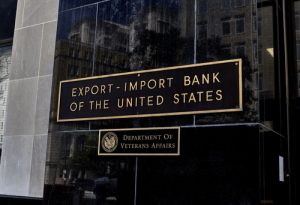
U.S. Reps. Frank Lucas (R-OK), Steve Stivers (R-OH) and Dan Newhouse (R-WA) on Dec. 6 issued statements reiterating their support for a long-term reauthorization of the United States Export-Import Bank.
“My colleagues and I all share a common commitment; American industries deserve long-term stability and legislative certainty,” Rep. Lucas said. “The long-term reauthorization of the United States Export-Import Bank is vital to the health of American businesses competing in the global market, including those calling Oklahoma home.”
Reps. Lucas, Stivers, and Newhouse also joined 40 other members of the U.S. House Republican Conference in sending a Nov. 21 letter to U.S. House leaders expressing support for a long-term reauthorization and quorum fix to the bank in the upcoming end-of-year spending package.
“With a fully operational bank, the United States and thousands of businesses across our country will have a much-needed economic tool helping level the playing field while increasing market access and creating jobs here at home,” said Rep. Lucas.
Rep. Stivers called the bank “a crucial tool” for businesses in his Ohio district to plan and expand their operations, create more jobs, and stimulate local economies.
“Short-term authorizations are harming our job creators, and we owe them a long-term fix,” Rep. Stivers said. “I, along with 42 of my colleagues, understand the importance of this program.”
Likewise, Rep. Newhouse said the Export-Import Bank has a huge impact in his home state of Washington.
“From manufacturers like Manhasset Specialty Co. in Yakima to agricultural entities like Valley Grain in Quincy, the Ex-Im Bank helps finance small businesses and keeps our economy thriving,” said Rep. Newhouse. “Congress must pass a long-term extension, so we can provide certainty to businesses around the country that create jobs and economic development in our local communities.”
In their letter, lawmakers explained that American businesses plan international projects and investments years in advance, so short-term extensions “restrict the ability of U.S. exporters to make long-term strategic decisions, hamstring the willingness of American companies to enter into emerging markets, and give foreign competitors an advantage in the world marketplace.”
“A long-term extension,” they wrote, “will give businesses the certainty they need to increase exports, which creates more jobs here at home.”



